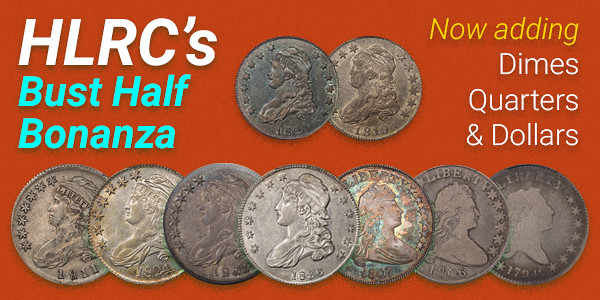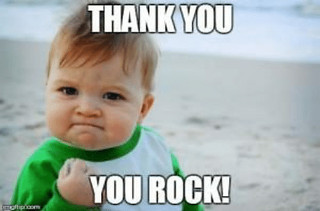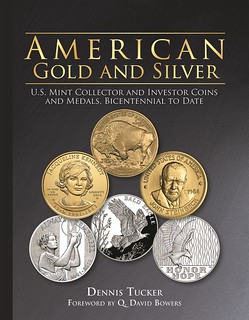
PREV ARTICLE
NEXT ARTICLE
FULL ISSUE
PREV FULL ISSUE
WHO DO YOU THANK IN A NUMISMATIC BOOK?Over on Coin Update Dennis Tucker of Whitman Publishing published a thoughtful article on who authors should thank when writing a numismatic book. Here's an excerpt. I added the thank-you meme. -Editor by Dennis Tucker
When you're writing a manuscript for a numismatic book, don't try to go it alone—look for opportunities to collaborate. And while you do, keep track of everyone who helps you along the way. You'll want to thank them in your book's credits and acknowledgments. A credit is public indication of a source of information, ideas, or other content. (This can include scholarly footnotes/endnotes and citations; broad crediting for general inspiration, numerous acts of help, and the like; or credit for specific content.) An acknowledgment is an expression of gratitude. Here are a few types of people and organizations you should thank in your numismatic book. Compile a list or spreadsheet as you work. Creating a manuscript can take months or years, and it's easy to forget or lose track of contributors if you don't write them down. Helpful research collaborators. Everyone who answers (or asks!) questions, follows up on leads, shares knowledge, or otherwise aids you in gathering and processing information. Assisting organizations. Libraries, museums, archives, history centers, foundations, educational nonprofits, and similar sources. You can thank both the organization and any particularly helpful staff or officers. Often a communications department or copyright office will provide specific wording for certain kinds of credit (e.g., a museum might want you to list archive or collection numbers, donor names, or other source information). Licensors and others who require credit. Unless your book's images come completely from your own photography and/or the public domain, you'll need to license or otherwise get permission for illustrations. Permission might be granted in exchange for credit in the book, or it might also require payment. Often it will require specific wording (e.g., "Image courtesy of the Town of Schroeppel Historical Society Museum") spelled out in a contract or permission letter. Keep especially careful track of such requirements as you go along. Early readers and editors. Anyone who takes the time to read, critique, and offer feedback on drafts and revisions of your work is doing you a great service. Be sure to thank them publicly! Personal inspirations. This can include a formal dedication to a loved one or a colleague or mentor, or broader acknowledgment of the help, sacrifices, or other inspiration provided by individuals or groups. Door-openers. This might seem like a "kitchen sink" approach, but it's good form to thank those who don't necessarily roll up their sleeves and dig the trenches, but who put you in contact, grant permission or entry, smooth the way, grease the wheels, open doors, write letters of recommendation or reference, make introductions, and otherwise share their own connections and access, either personal or professional. It might be tempting to think, "Well, that person had to say ‘yes' to my request; it's their job"—but ask yourself, "Could they just as easily and defensibly have delayed or ignored me, or simply said ‘no'?" It doesn't cost you anything to acknowledge professional courtesies. Excellent points! Thank you. See the complete article for a detailed case study from Dennis's book, American Gold and Silver: U.S. Mint Collector and Investor Coins and Medals, Bicentennial to Date. -Editor To read the complete article, see:
 Wayne Homren, Editor The Numismatic Bibliomania Society is a non-profit organization promoting numismatic literature. See our web site at coinbooks.org. To submit items for publication in The E-Sylum, write to the Editor at this address: whomren@gmail.com To subscribe go to: https://my.binhost.com/lists/listinfo/esylum All Rights Reserved. NBS Home Page Contact the NBS webmaster 
|

